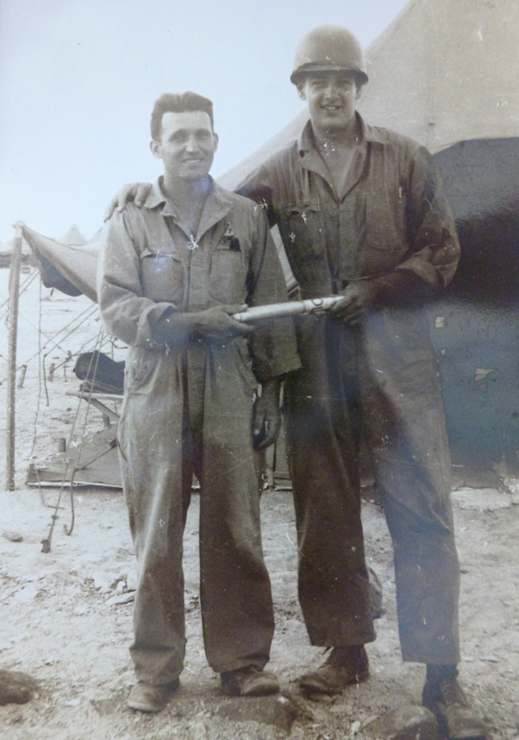Life isn’t fair: that’s a lesson my dad learned growing up during the Great Depression and working hard in the Civilian Conservation Corps and local factories in the 1930s. He also learned it during World War II, when he was drafted and eventually assigned to an armored headquarters company at Fort Jackson, South Carolina. In fact, before World War II, my dad tried to enlist in the Navy, only to discover he was too short to make the grade (he was just under 64″, the Navy minimum, and recruiters were picky before Pearl Harbor). A half-inch or so probably saved my dad’s life. After that experience, my dad vowed he wouldn’t volunteer for war; he’d wait until he was drafted, which he was in 1942 by the Army.
My dad was on track to be a surgical technician for the 7th Armored Division; he would have gone overseas and faced combat. But another soldier on the dental technician track talked my dad into switching positions with him. My dad agreed, only to learn a dental technician was limited to a corporal technician’s rating, whereas a surgical tech could become a sergeant with higher pay. My dad was also “excess” on the table of organization when he finished training, so he was reassigned from the 7th Armored to the 15th Armored Group.
My dad had to transfer and got less pay, but he got lucky: his new unit didn’t go overseas, whereas the 7th Armored did. A guy he knew, Danny Costellani, was transferred from medical battalion to armored infantry while in France and was killed in action. My dad knew this could have been him.
While my dad was assigned to Fort Jackson, South Carolina, late in 1944, there was a frantic call for more soldiers to be sent overseas in response to high losses during the Battle of the Bulge, the last major German offensive of World War II. Many “green” recruits were rushed through basic training and shipped overseas to fight the Germans. But a few local Southerners noticed that highly qualified soldier-athletes at Fort Jackson weren’t being sent anywhere. They just seemed to stay in place while playing baseball, football, tennis, and other sports. I’ll let my dad take the story from here:
During the Battle of the Bulge some Southern civilians were wondering why their sons, after Basic Training were shipped overseas as replacements. While the Post Commander had on station complement a group of about fifty soldiers who played sports for the Ft Jackson baseball, basketball, football and even tennis teams. Well the general got an order from higher echelons to put all able bodied troops into a combat outfit. Well fifty of our soldiers were shipped overseas and fifty of the general’s athletes were put into our company. When that happened the rest of our company figured we would never go overseas. As time showed 99% stayed state side. The 15th Armored Group took all the athletic honors. Very seldom did our sports teams lose.
My dad saved newspaper clippings that celebrated the athletic achievements of the 15th Armored Group. One photo showed the 15th Headquarters and Headquarters Company orientation room, which included a prominent section on “The World of Sports” and a table showcasing all individual and team trophies.
My dad may have owed his life to a picky Navy recruiter and a fellow soldier who wanted sergeant’s stripes. These athletes at Fort Jackson may have owed their lives to a post commander who preferred winning at sports to shipping the most able-bodied troops overseas to fight the enemy.
Yes, life isn’t fair. And fate sure does have an odd sense of humor.

William J. Astore is a retired lieutenant colonel (USAF). He taught history for fifteen years at military and civilian schools and blogs at Bracing Views. He can be reached at wastore@pct.edu. Reprinted from Bracing Views with the author’s permission.



